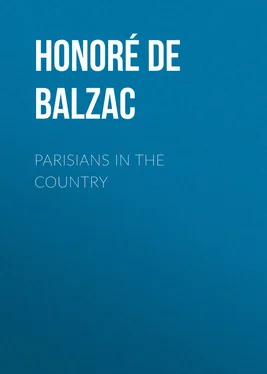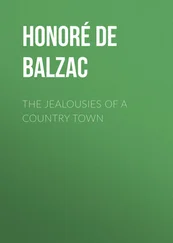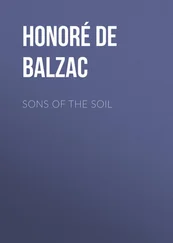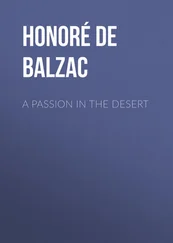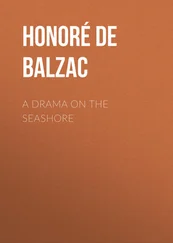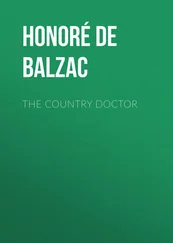Honoré Balzac - Parisians in the Country
Здесь есть возможность читать онлайн «Honoré Balzac - Parisians in the Country» — ознакомительный отрывок электронной книги совершенно бесплатно, а после прочтения отрывка купить полную версию. В некоторых случаях можно слушать аудио, скачать через торрент в формате fb2 и присутствует краткое содержание. Жанр: literature_19, foreign_antique, foreign_prose, на английском языке. Описание произведения, (предисловие) а так же отзывы посетителей доступны на портале библиотеки ЛибКат.
- Название:Parisians in the Country
- Автор:
- Жанр:
- Год:неизвестен
- ISBN:нет данных
- Рейтинг книги:4 / 5. Голосов: 1
-
Избранное:Добавить в избранное
- Отзывы:
-
Ваша оценка:
- 80
- 1
- 2
- 3
- 4
- 5
Parisians in the Country: краткое содержание, описание и аннотация
Предлагаем к чтению аннотацию, описание, краткое содержание или предисловие (зависит от того, что написал сам автор книги «Parisians in the Country»). Если вы не нашли необходимую информацию о книге — напишите в комментариях, мы постараемся отыскать её.
Parisians in the Country — читать онлайн ознакомительный отрывок
Ниже представлен текст книги, разбитый по страницам. Система сохранения места последней прочитанной страницы, позволяет с удобством читать онлайн бесплатно книгу «Parisians in the Country», без необходимости каждый раз заново искать на чём Вы остановились. Поставьте закладку, и сможете в любой момент перейти на страницу, на которой закончили чтение.
Интервал:
Закладка:
‘Father of a family!’ I exclaimed; ‘my dear sir, have you any children?’ ‘Yes.’ ‘Twelve years old?’ ‘Just about.’ ‘Well, then, the “Children’s Journal” is the very thing for you; six francs a year, one number a month, double columns, edited by great literary lights, well got up, good paper, engravings from charming sketches by our best artists, actual colored drawings of the Indies – will not fade.’ I fired my broadside ‘feelings of a father, etc., etc.,’ – in short, a subscription instead of a quarrel. ‘There’s nobody but Gaudissart who can get out of things like that,’ said that little cricket Lamard to the big Bulot at the cafe, when he told him the story.
“I leave to-morrow for Amboise. I shall do up Amboise in two days, and I will write next from Tours, where I shall measure swords with the inhabitants of that colorless region; colorless, I mean, from the intellectual and speculative point of view. But, on the word of a Gaudissart, they shall be toppled over, toppled down – floored, I say.
“Adieu, my kitten. Love me always; be faithful; fidelity through thick and thin is one of the attributes of the Free Woman. Who is kissing you on the eyelids?
“Thy Felix Forever.”
CHAPTER III
Five days later Gaudissart started from the Hotel des Faisans, at which he had put up in Tours, and went to Vouvray, a rich and populous district where the public mind seemed to him susceptible of cultivation. Mounted upon his horse, he trotted along the embankment thinking no more of his phrases than an actor thinks of his part which he has played for a hundred times. It was thus that the illustrious Gaudissart went his cheerful way, admiring the landscape, and little dreaming that in the happy valleys of Vouvray his commercial infallibility was about to perish.
Here a few remarks upon the public mind of Touraine are essential to our story. The subtle, satirical, epigrammatic tale-telling spirit stamped on every page of Rabelais is the faithful expression of the Tourangian mind, – a mind polished and refined as it should be in a land where the kings of France long held their court; ardent, artistic, poetic, voluptuous, yet whose first impulses subside quickly. The softness of the atmosphere, the beauty of the climate, a certain ease of life and joviality of manners, smother before long the sentiment of art, narrow the widest heart, and enervate the strongest will. Transplant the Tourangian, and his fine qualities develop and lead to great results, as we may see in many spheres of action: look at Rabelais and Semblancay, Plantin the printer and Descartes, Boucicault, the Napoleon of his day, and Pinaigrier, who painted most of the colored glass in our cathedrals; also Verville and Courier. But the Tourangian, distinguished though he may be in other regions, sits in his own home like an Indian on his mat or a Turk on his divan. He employs his wit in laughing at his neighbor and in making merry all his days; and when at last he reaches the end of his life, he is still a happy man. Touraine is like the Abbaye of Theleme, so vaunted in the history of Gargantua. There we may find the complying sisterhoods of that famous tale, and there the good cheer celebrated by Rabelais reigns in glory.
As to the do-nothingness of that blessed land it is sublime and well expressed in a certain popular legend: “Tourangian, are you hungry, do you want some soup?” “Yes.” “Bring your porringer.” “Then I am not hungry.” Is it to the joys of the vineyard and the harmonious loveliness of this garden land of France, is it to the peace and tranquillity of a region where the step of an invader has never trodden, that we owe the soft compliance of these unconstrained and easy manners? To such questions no answer. Enter this Turkey of sunny France, and you will stay there, – lazy, idle, happy. You may be as ambitious as Napoleon, as poetic as Lord Byron, and yet a power unknown, invisible, will compel you to bury your poetry within your soul and turn your projects into dreams.
The illustrious Gaudissart was fated to encounter here in Vouvray one of those indigenous jesters whose jests are not intolerable solely because they have reached the perfection of the mocking art. Right or wrong, the Tourangians are fond of inheriting from their parents. Consequently the doctrines of Saint-Simon were especially hated and villified among them. In Touraine hatred and villification take the form of superb disdain and witty maliciousness worthy of the land of good stories and practical jokes, – a spirit which, alas! is yielding, day by day, to that other spirit which Lord Byron has characterized as “English cant.”
For his sins, after getting down at the Soleil d’Or, an inn kept by a former grenadier of the imperial guard named Mitouflet, married to a rich widow, the illustrious traveller, after a brief consultation with the landlord, betook himself to the knave of Vouvray, the jovial merry-maker, the comic man of the neighborhood, compelled by fame and nature to supply the town with merriment. This country Figaro was once a dyer, and now possessed about seven or eight thousand francs a year, a pretty house on the slope of the hill, a plump little wife, and robust health. For ten years he had had nothing to do but take care of his wife and his garden, marry his daughter, play whist in the evenings, keep the run of all the gossip in the neighborhood, meddle with the elections, squabble with the large proprietors, and order good dinners; or else trot along the embankment to find out what was going on in Tours, torment the cure, and finally, by way of dramatic entertainment, assist at the sale of lands in the neighborhood of his vineyards. In short, he led the true Tourangian life, – the life of a little country-townsman. He was, moreover, an important member of the bourgeoisie, – a leader among the small proprietors, all of them envious, jealous, delighted to catch up and retail gossip and calumnies against the aristocracy; dragging things down to their own level; and at war with all kinds of superiority, which they deposited with the fine composure of ignorance. Monsieur Vernier – such was the name of this great little man – was just finishing his breakfast, with his wife and daughter on either side of him, when Gaudissart entered the room through a window that looked out on the Loire and the Cher, and lighted one of the gayest dining-rooms of that gay land.
“Is this Monsieur Vernier himself?” said the traveller, bending his vertebral column with such grace that it seemed to be elastic.
“Yes, Monsieur,” said the mischievous ex-dyer, with a scrutinizing look which took in the style of man he had to deal with.
“I come, Monsieur,” resumed Gaudissart, “to solicit the aid of your knowledge and insight to guide my efforts in this district, where Mitouflet tells me you have the greatest influence. Monsieur, I am sent into the provinces on an enterprise of the utmost importance, undertaken by bankers who – ”
“Who mean to win our tricks,” said Vernier, long used to the ways of commercial travellers and to their periodical visits.
“Precisely,” replied Gaudissart, with native impudence. “But with your fine tact, Monsieur, you must be aware that we can’t win tricks from people unless it is their interest to play at cards. I beg you not to confound me with the vulgar herd of travellers who succeed by humbug or importunity. I am no longer a commercial traveller. I was one, and I glory in it; but to-day my mission is of higher importance, and should place me, in the minds of superior people, among those who devote themselves to the enlightenment of their country. The most distinguished bankers in Paris take part in this affair; not fictitiously, as in some shameful speculations which I call rat-traps. No, no, nothing of the kind! I should never condescend – never! – to hawk about such CATCH-FOOLS. No, Monsieur; the most respectable houses in Paris are concerned in this enterprise; and their interests guarantee – ”
Читать дальшеИнтервал:
Закладка:
Похожие книги на «Parisians in the Country»
Представляем Вашему вниманию похожие книги на «Parisians in the Country» списком для выбора. Мы отобрали схожую по названию и смыслу литературу в надежде предоставить читателям больше вариантов отыскать новые, интересные, ещё непрочитанные произведения.
Обсуждение, отзывы о книге «Parisians in the Country» и просто собственные мнения читателей. Оставьте ваши комментарии, напишите, что Вы думаете о произведении, его смысле или главных героях. Укажите что конкретно понравилось, а что нет, и почему Вы так считаете.
